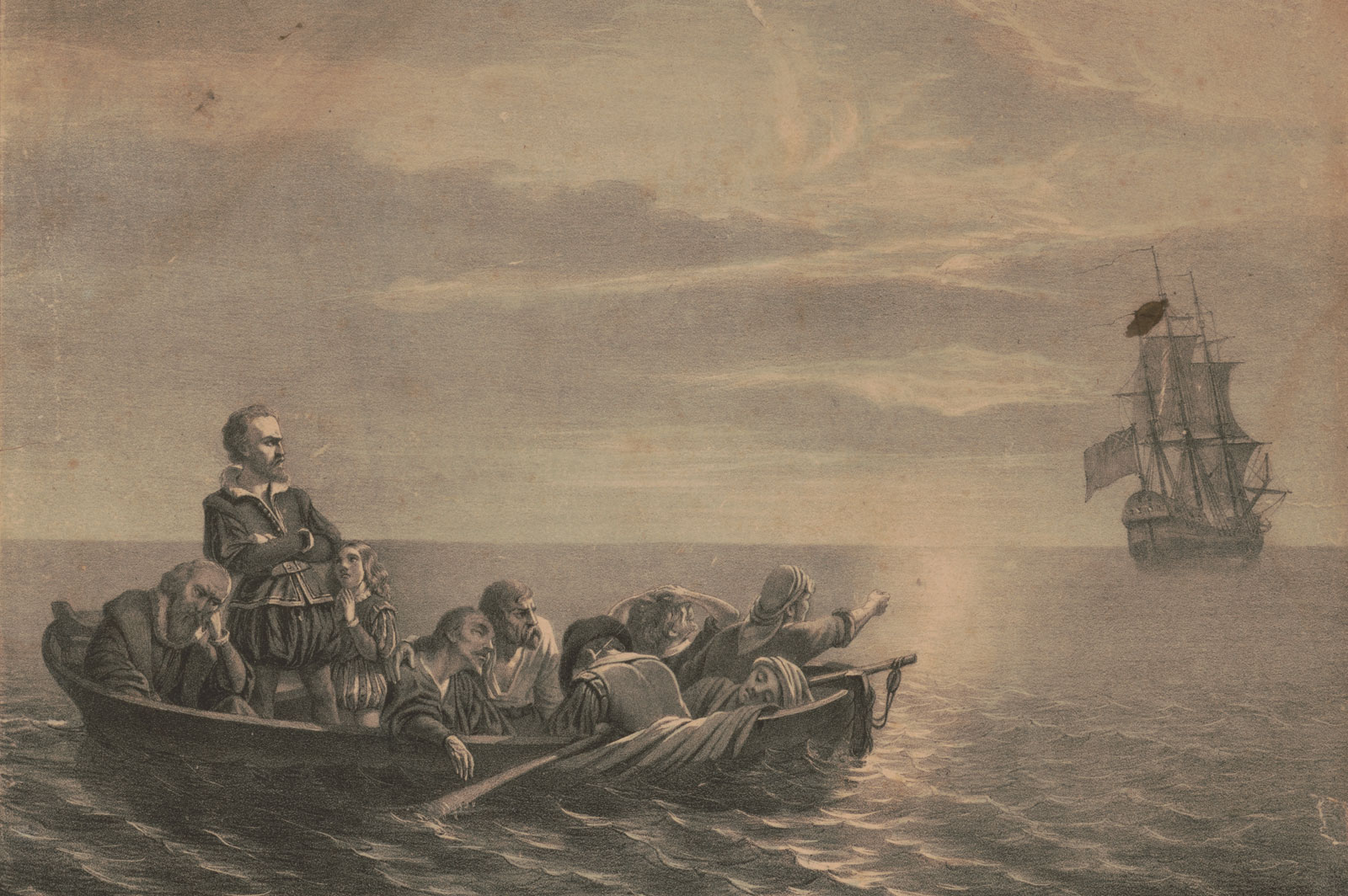About Publications Library Archives
cthl.org

Preserving American Heritage & History

Preserving American Heritage & History


Hudson, HENRY, navigator; born about the middle of the sixteenth century; was first employed by English merchants, in 1607, to search for a northeastern passage to India. He sailed from Gravesend on May 1, 1607, in a small vessel manned by only ten men and a boy-the latter his son. In lat. 80° N., on the eastern coast of Greenland, he was stopped by the ice-pack. He fought the ice-floes and storms for many weeks, and then returned to England in September, bearing only the fruit of the discovery of the island of Spitzbergen. Neither he nor his employers were disheartened, and late in April, 1608, he sailed again, expecting to make a passage between Spitzbergen and Nova Zembla. Again he was compelled by the ice to turn back. His employers were now discouraged, and Hudson went over to Holland and offered his services to the Dutch East India Company, and they were accepted. On April 6, 1609, he sailed from Amsterdam in the Half Moon, a stanch vessel of 90 tons, and steered for Nova Zembla. Again the ice-barrier forbade his entrance to the polar seas. Determined not to return fruitless to Amsterdam, he sailed around the southern shores of Greenland, into the beaten track of searchers after a northwest passage. Again he was repulsed by the ice. Sailing southward, he discovered the American continent off the coast of Maine, and in Casco Bay he repaired his storm-shattered vessel. He then sailed southward as far as the Cape of Virginia, touching at Cape Cod on the way. Returning, he discovered Delaware Bay, and early in September he entered Raritan Bay, south of Staten Island, and afterwards entered the (present) harbor of New York. Treating the Indians unkindly, they were hostile, and one of his seamen was killed by them, who attacked a boat’s crew in canoes. From the north flowed a large river into New York Bay. Believing it would afford a northwest passage, he sailed up the stream, and was not undeceived until he met fresh water in the Highlands. He kept on in his ship as far as the site of Albany, and in small boats several miles farther. Returning to the sea, he followed the coast southward as far as Chesapeake Bay, and then returned to England and told the story of his discoveries. The unworthy monarch on England’s throne, jealous of the advantage which the Dutch might derive from Hudson’s discoveries, detained him as an English subject; but the navigator outwitted his sovereign, for he had sent an account of his voyage to his Amsterdam employers by a trusty hand.
In 1610 he sailed from England on his fourth voyage, this time in the northwest. He discovered the bay that bears his name (HUDSON BAY) in the far north of the western hemisphere, and intended to winter there; but a majority of his crew became mutinous and compelled him to sail homeward. On the way his son and seven of his men who had remained faithful to him were seized by the mutineers, and, with the commander, were placed in an open shallop and abandoned on the icy sea, where, of course, they soon perished. The names of the wretched passengers in that little vessel, left to perish, were Henry Hudson, John Hudson, Arnold Ludlow, Shadrach Fanna, Philip Staffe, Thomas Woodhouse, Adam Moore, Henry King, and Michael Bute. The compassionate carpenter of the ship furnished them with a fowling-piece, some powder and shot, some meal and an iron pot to cook it in, and a few other things. They were towed by the ship out of the ice-floes to the open sea, and then cut adrift.
The fate of the castaways was revealed by one of the mutineers. England sent an expedition in search of them, but no trace could be found.